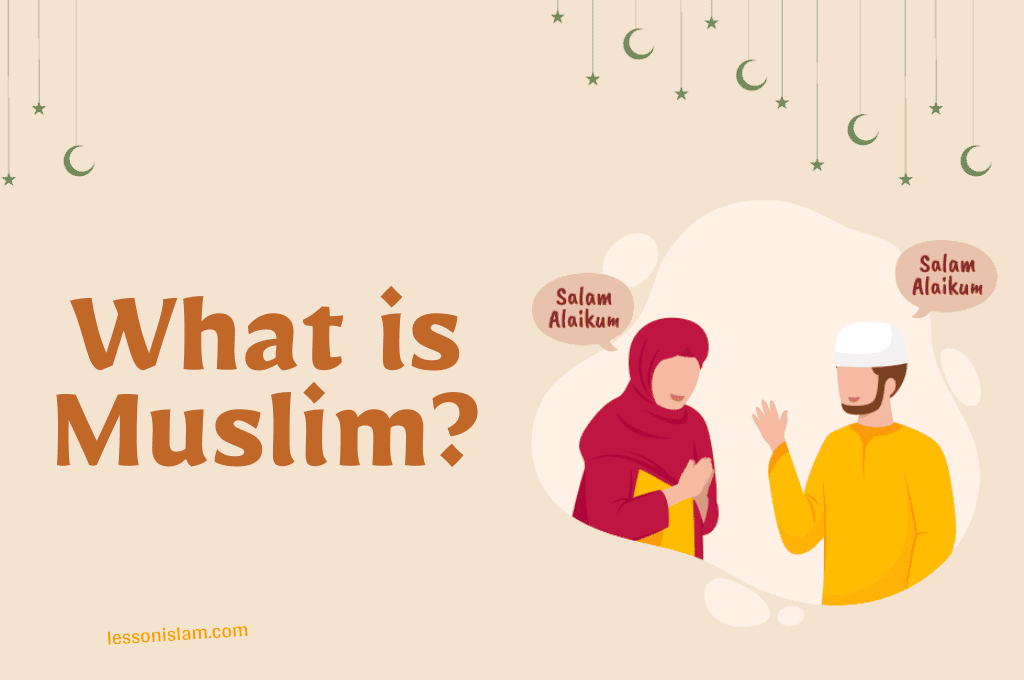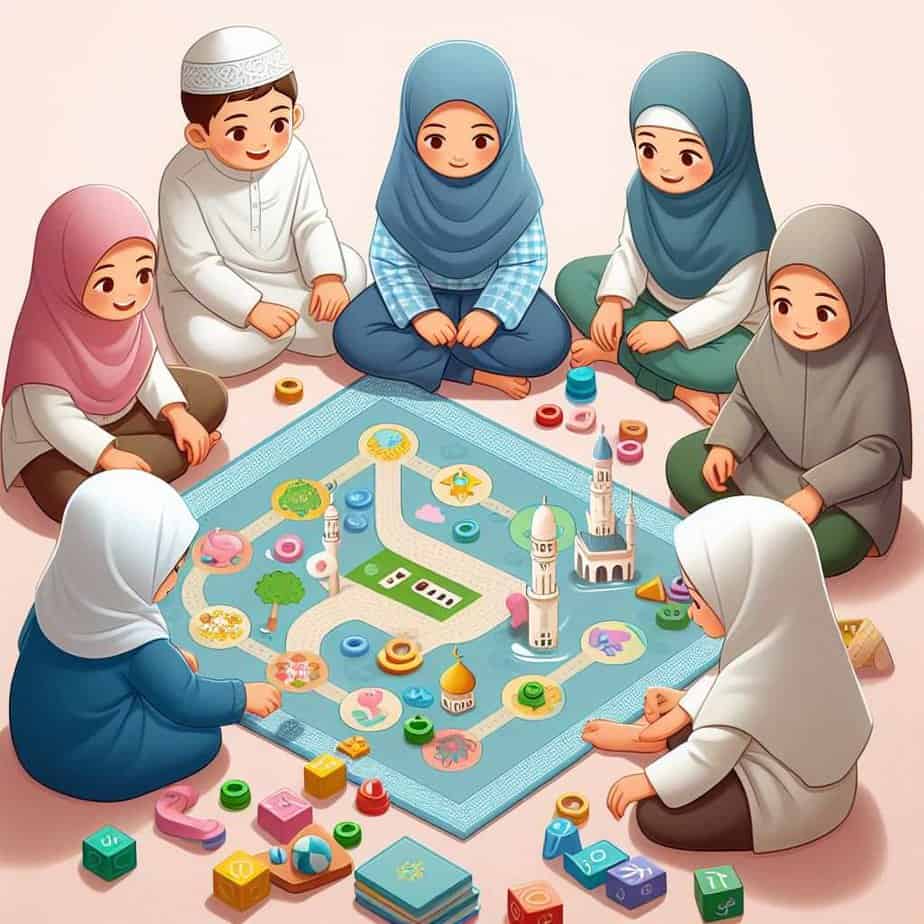Asslamu alekum, my brothers and sisters, we are so lucky just because Allah SWT makes us Muslims and the Ummati of the Prophet Muhammad, but have you ever thought about What is Muslim?
Now you may think, why im saying we are so lucky? Inshallah, I’ll explain why a Muslim is lucky and what Allah SWT says for the Muslim community.
Before moving ahead, we should know about the Muslim meaning: “One who submits to Allah.” This word is derived from the Arabic word “Islam”, which means “Submission“.
Being Muslims, we must believe that there is no god but Allah, and the Prophet Muhammad (peace be upon him) is the last messenger of Allah.
There are so many obligations and commands of Allah SWT that Muslims must follow. And the prophet Muhammad told us 1400 years ago how to follow all the commands and obligations in our life.
That’s why we brought this article to understand What is Muslim? and some important obligations that Muslim follow in their lives.
Let’s move toward understanding this super informational topic. Read this, and Inshallah, you, we will be all the facts about Muslims.
Who are Muslims? The basics of the Islamic faith
Of the 8 billion people in this world, Muslims are adherents worldwide. Islam is the second-largest religion after Christianity.
Muslim meaning: “One who submits to Allah.” This word is derived from the Arabic word “Islam”, which means “Submission“.
Being Muslims, we must believe that there is no god but Allah, and the Prophet Muhammad (peace be upon him) is the last messenger of Allah.
Quran, the holy book of Islam, is the revealed word of Allah. Also, Allah SWT makes five major pillars of Islam that Muslims follow. If someone rejects these five pillars (obligation) and faith, he can’t be Muslim.
Those five pillars are:
- Shahadah: The declaration of faith.
- Salah: The five daily prayers.
- Zakat: The obligatory charity.
- Sawm: The fasting during the month of Ramadan.
- Hajj: The pilgrimage to Mecca.
To be a Muslim, one must believe in the six articles of faith:
- Belief in Allah as the one and only God.
- Belief in the angels.
- Belief in the holy books, including the Quran.
- Belief in the prophets, including Muhammad (peace be upon him).
- Belief in the Day of Judgment.
- Belief in predestination.
Differences between Sunni and Shia Muslims
When we hear Sunni and Shia Muslims, the question comes to mind: what are Sunni and Shia, and what is the major difference between Sunni and Shia?
So let me tell you, Sunni and Shia are two major branches of Islam where. Sunni comprise about 85-90% of the world’s Muslim population, whereas Shia comprises about 10-15% of the world’s Muslim population.
The Major Different Between Sunni and Shia
Sunni is the most common branch of Islam. They believe leadership should fall to the most qualified follower after the Prophet Muhammad. While Shias people believe leadership should stay within the Prophet’s family line of Imams.
Sunni Muslims follow the Rashidun, Khalifa’s “successor”, “ruler”, or “leader” of the Prophet Muhammad. In contrast, Shia Muslims follow Ali, Muhammad’s cousin/son-in-law, whom they see as the first valid successor, khalifa.
Sunni Muslims follow the traditional Islamic laws and are interpreted by Islamic scholars, while Shi Muslims prioritise their imams for interpretation.
Sunni Muslims comprise around 85-90% of Muslims worldwide, while Shiites comprise 10-15%.
Major branches(Sunni, Shia, Sufi, etc.)
As earlier we have told you, Islam has two main branches: Sunni and Shia. But at the same time, we should also know about the jurisprudence of the Sunni branch.
There are Four main schools of jurisprudence: Hanafi, Maliki, Shafi’i, and Hanbali in Sunni tradition.
Hanafi School of jurisprudence
The largest school of Sunni jurisprudence is prevalent in Turkey, Central Asia, and the Indian subcontinent. Known for a more liberal methodology that uses analogical reasoning and consensus of opinions.
Maliki School of jurisprudence
The second largest legal school, heavily based on hadiths and practices of Medina. Overall, in North and West Africa. Tends to be more conservative than Hanafi.
Shafi’i School of jurisprudence
A school that sought to find a balance between the Hanafi and Maliki approaches. Very influential in Indonesia, Malaysia, Egypt, and parts of the Middle East.
Hanbali School of jurisprudence
The smallest and most traditionalist legal school. Dominant today in Saudi Arabia and Qatar. It is the strictest in following textual sources like the Quran and hadiths.
Sharia law: Principles, interpretations, and debates
Sharia law is the meaning of this Arabic word. It refers to laws and the principles of Islam that Muslims follow in their lives.
The primary source of laws and principles is the holy Quran and the hadith of the prophet Muhammad (Peace be upon him).
Where sharia guides all aspects, including worship, family life, business transactions, governance, and penalties for crimes, it covers both religious rituals and day-to-day activities.
There are many debates around Sharia, often to issues including women’s rights, corporal punishment, apostasy, and blasphemy laws, and how much Sharia should influence secular legal systems.
The global Muslim population and demographics
If we talk about the population of Muslim communities worldwide, there are approximately 1.8 billion, and Islam is the world’s second-largest religion after Christianity.
The countries with the largest Muslim populations are Indonesia, India, Pakistan, Bangladesh, Nigeria, Egypt, and Iran. However, the Middle East and North Africa region has the highest concentration of Muslims.
Muslims Cultural diversity and traditions
Islam is known for its peaceful and cultural diversity of ethnic groups within a society. There are some most common cultural practices are:
- Salah: this is obligatory for all Muslims to read five times daily salah on their time
- Zakat: it is the most important culture for all Muslims to give charity 2.5% of their wealth.
- Fast: fasting during the Ramadan month is also an obligation for all Muslims expected those sick
- Hajj: The pilgrimage to Mecca. It is also mandatory for those who have good wealth.
Final Thought
As a Muslim myself, researching the core tenets and practices of Islam has reaffirmed my faith and made me feel grateful to be part of this global community.
I’m in awe of the beauty and simplicity of submitting to the oneness of Allah, and find comfort in the ritual practices that connect me to God and the ummah. While divisions exist, the shared love for the Prophet Muhammad (Peace be upon him) and desire to live an ethical life unite us.
I’m inspired by the diversity within Islam and cherish the cultural traditions that allow my expression of faith. Delving deeper, I better understand the role of Sharia in guiding Muslim life, though I recognize the differing views on its applications.
Islam’s rapid growth affirms its power to provide meaning and purpose. My heart swells with pride in this cherished identity and way of life that has shaped my character. Though Islam faces misunderstandings and criticisms, I remain hopeful that its light will prevail through compassion and wisdom.
























Post Comment